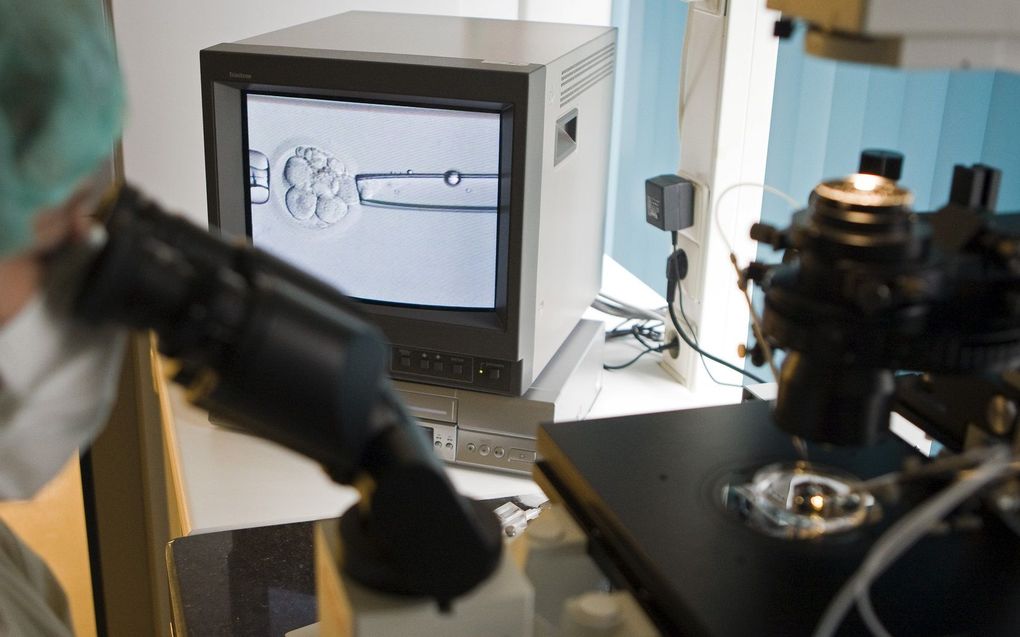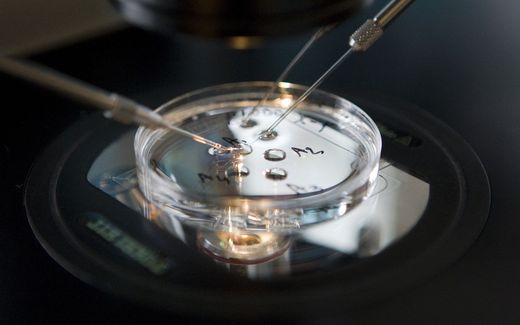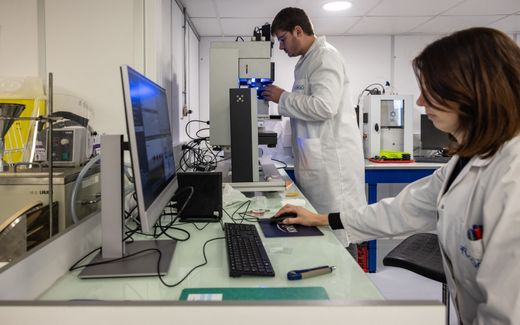Christian considerations about IVF

A researcher is busy with preparations for embryo selection. Photo ANP, Lex van Lieshout
Christian Life
Couples who struggle with infertility have many options today. One of them is invitro fertilisation (IVF). However, there are some ethical dilemmas that come with this treatment. Some pros and cons from a Christian perspective.
Pros
Remedy
IVF is a remedy for infertility, which is a consequence of the Fall. Some Christians argue that IVF is like medicine during the treatment of an illness. Just like someone would take antibiotics to cure his infection, a couple may use this treatment to overcome their infertility problems, which came into the world after the Fall into sin in Paradise.
Some women may struggle with a blockade in their fallopian tubes, for example. IVF can then be a solution to bring sperm and egg cell together and let it implant itself in the uterus.
Blessing
One of God's goals for marriage is to "be fruitful and multiply"; IVF allows couples who struggle with fertility problems to adhere to God's calling in this. Children are a blessing of God and necessary for the future of the church. Some say that God did not intend infertility with the creation of man and is therefore pleased if couples do their best to overcome this issue by using IVF. “We may fight the consequences of the Fall within Biblical guidelines”, Dr Alie Hoek-van Kooten argues in an article in the Dutch daily Reformatorisch Dagblad.
Options
Potential ethical dilemmas, such as the creation of rest embryos, can be overcome as there are several different IVF options available nowadays. For example, it is possible to freeze unfertilised egg cells, which can be fertilised with sperm and implanted one by one. That means that no extra embryos are created.
Cons
Miracle
The conception of life is meant to happen in the intimate relationship between a man and a woman. IVF removes this miracle of life from the bedroom to a medical laboratory. Laurens van der Tang, a well-known Dutch Reformed elder, argues that procreation as "a deed from God in the context of intimate intercourse and love between a husband and his wife" may not become "a technical process which involves third parties."
Providence
Childlessness is something that is predestined by God's providence. Therefore, man may not interfere with this. In addition, IVF does not only give married heterosexual couples the chance to overcome their infertility but also gay couples who cannot conceive because of obvious natural reasons. Therefore, the technique is part of the sexual revolution, which should be countered, Van der Tang argues. He calls IVF a "child creation industry".
Embryo selection
IVF carries a large risk of embryo selection. Parents may choose a healthy embryo over one that has a disorder or a genetic disease. Embryos that are rejected are stored in the freezer for an indefinite period of time or even destroyed. This is unethical from the Christian view that all people are made in God's image. Critics of IVF also point out that God determines in His providence who is born when and that people should not try to run away from the 'burden' of caring for a disabled child.
Costs
The procedure of IVF comes at a high cost. In particular, the woman has to undergo several invasive procedures to get her egg cells harvested. In order to get enough egg cells for IVF, she needs to take hormone injections, for example. Also, the extraction of cells requires light surgery. Sperm cells are, on the other hand, often acquired through masturbation, which leads to new ethical dilemmas.
Conscience
In conclusion, most Christians judge IVF to be a matter of conscience, provided that only married, heterosexual couples use the technique. It is important, however, that these couples surround their choice with prayer: "Thy will be done."
Related Articles










